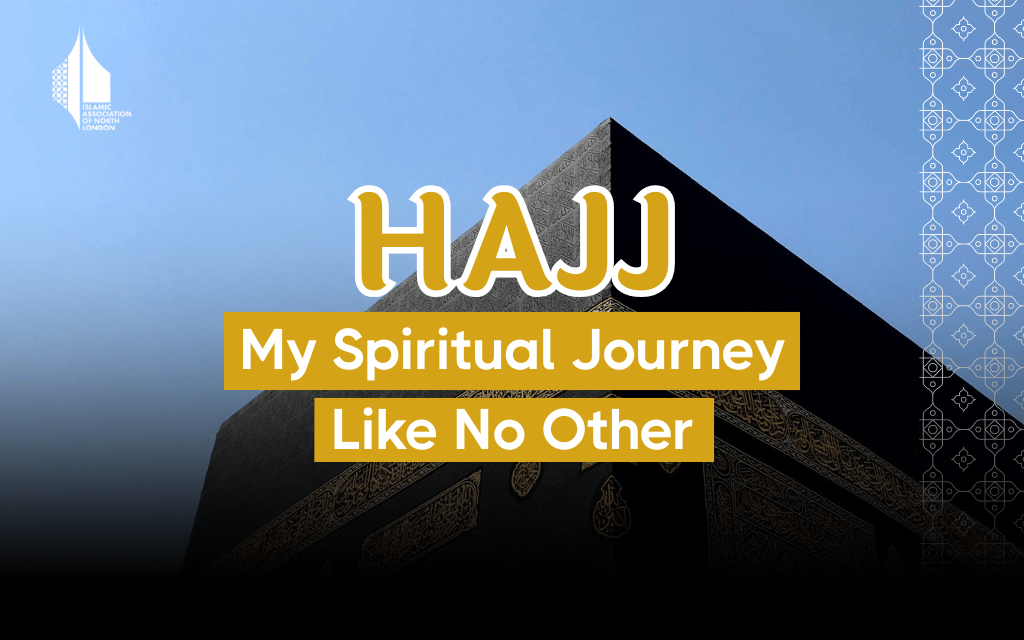A Sister’s Hajj Experience: A Day-by-Day Diary
This is a journal from one of the sisters in the IANL community who was blessed with the opportunity to perform Hajj this year.
Alhamdulillah, by Allah’s blessings, I was granted the opportunity to perform Hajj this year. I applied through Nusuk earlier in the year by submitting the required documents (such as a copy of my passport, proof of residency, etc.) and paying the necessary fees. If you are planning to perform Hajj next year from the UK, keep an eye out later this year, as Nusuk typically opens registration around December.
The essence of Hajj is the journey of our hearts away from the house of our lower selves (nufus) with its passions (shahawat), inclinations (ahwa’) and attachment to the created world (khalq) to the haram and, ultimately, the House of Allah. We must leave our attachments to receive the greatest connection. We must leave to arrive.
Hajj begins on the 8th of Dhul Hijjah and lasts until the 12th or 13th of Dhul Hijjah, which requires us to be in the state of ihram. Once in the state of ihram, we should recite Talbiyah. Talbiyah is the heart’s most profound surrender to the invitation and call of Allah:
لَبَّيْكَ اللهُمَّ لَبَّيْكَ – لَبَّيْكَ لَا شَرِيْكَ لَكَ لَبَّيْكَ – إِنَّ الْحَمْدَ وَالنِّعْمَةَ لَكَ وَالْمُلْكَ – لَا شَرِيْكَ لَكَ
________________________________________
8th Dhul-Hijjah
We departed to Mina after Fajr. Before that, we did Ghusl and made intention for Hajj.
لَبَّيْكَ اَللَّهُمَّ حَجًّا
In Mina, we slept in the camp with other pilgrims in the same travel package.
All prayers were shortened but not combined. Throughout the day,
we took rest and recite Talbiyah as much as we can.
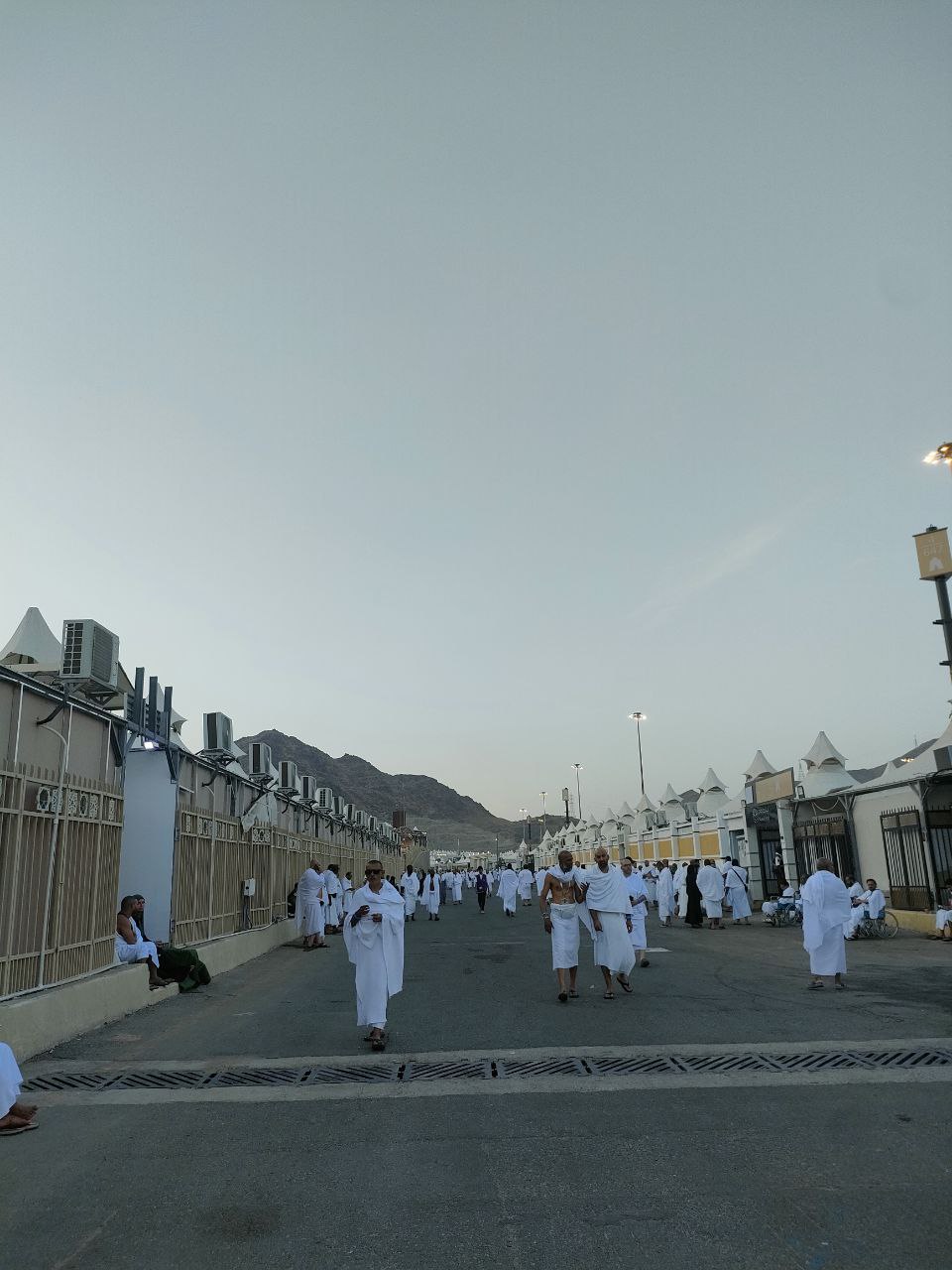
________________________________________
9th Dhul-Hijjah
الحج عرفة “Hajj is Arafat.”
Pilgrims spend a lot of money so they can be in Arafah on the 9th of Dhul-Hijjah. Other Hajj rituals, if you can’t make them, have substitutions, or you can pay the fine (dam). But staying in Arafah on the 9th is a must, even it is only for 10mins. That’s why we saw so many ambulances going around Arafat, carrying pilgrims who were hospitalized, so they don’t miss the actual Hajj.
It was on the Day of ‘Arafah that Allah (SWT) perfected His religion, completed His favours upon His beloved Prophet Muhammad (peace be upon him), and approved Islam as a way of life!
ٱلْيَوْمَ أَكْمَلْتُ لَكُمْ دِينَكُمْ وَأَتْمَمْتُ عَلَيْكُمْ نِعْمَتِى وَرَضِيتُ لَكُمُ ٱلْإِسْلَـٰمَ دِينًۭا ۚ فَمَنِ ٱضْطُرَّ فِى مَخْمَصَةٍ غَيْرَ مُتَجَانِفٍۢ لِّإِثْمٍۢ ۙ فَإِنَّ ٱللَّهَ غَفُورٌۭ رَّحِيمٌۭ
QS Al Maidah Ayah 3
The Day of ‘Arafah is also known as the Day of Standing, referring to the fact that pilgrims stand in front of their Lord for long periods of time, asking for His Divine Mercy. It’s also the day when Allah descends down from the sky in a way befitting of Him and says to His angels:
My slaves have come to Me, looking rough, from every deep valley hoping for My mercy, if your sins were equivalent to the amount of sand or the drops of rain or like the foam on the sea I will forgive them. So go forth My slaves! Having forgiveness and for what or who you have interceded for.
[Hadith | Tabarani]
We are encouraged to recite the following Dua on the day of ‘Arafah:
لَا إِلَهَ إِلَّا اللهُ ، وَحْدَهُ لَا شَرِيكَ لَهُ ، لَهُ الْمُلْكُ وَلَهُ الْحَمْدُ ، وهُوَ عَلَى كُلِّ شَيْءٍ قَدِيرٌ
None has the right to be worshipped except Allah, alone, without partner. To Him belongs sovereignty and all praise and He is over all things omnipotent.
I am sure other pilgrims have the same feeling: you won’t forget the Day of Arafah. It was the first time in my life that I saw people standing, crying, and praying for hours.
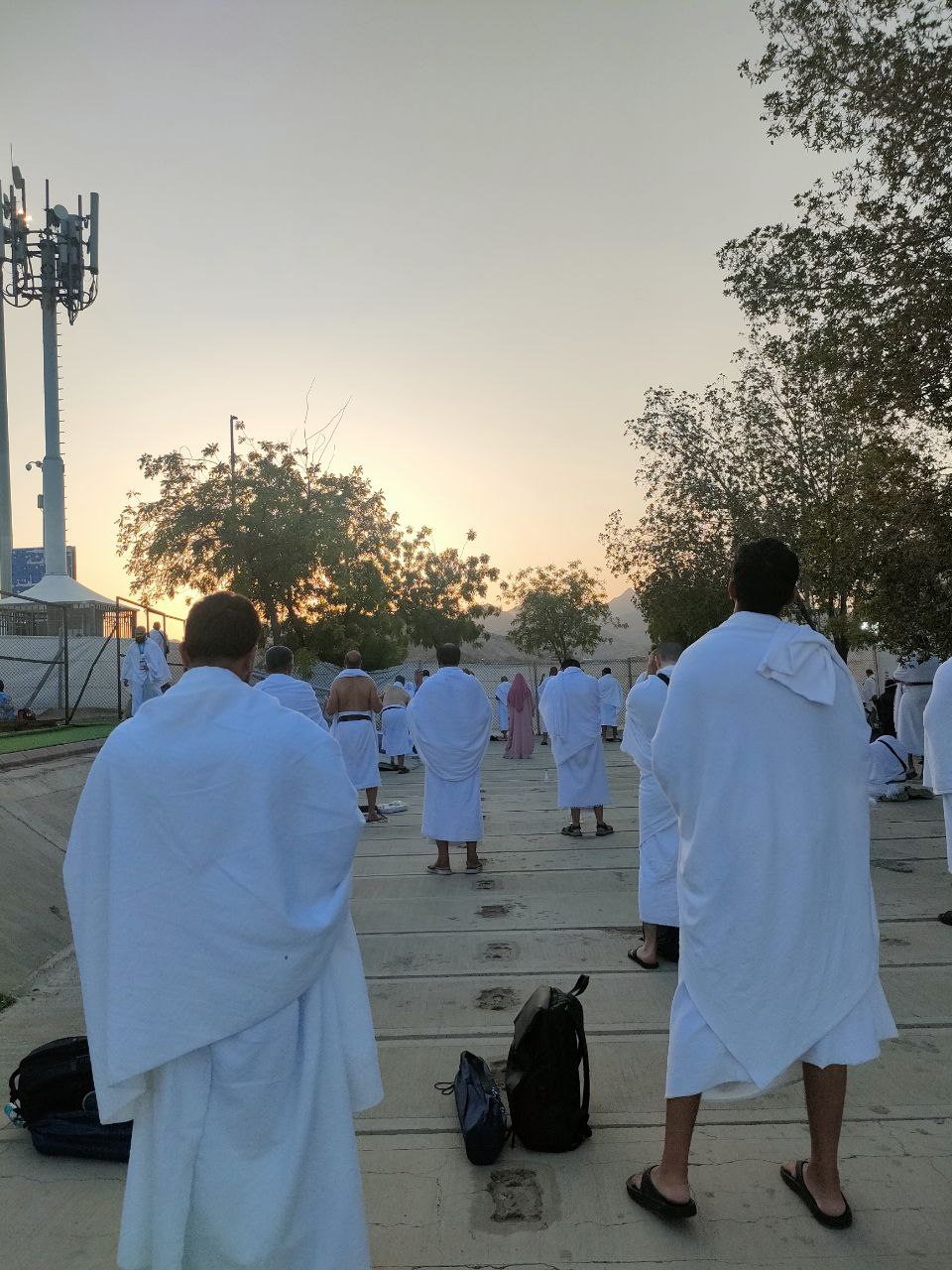
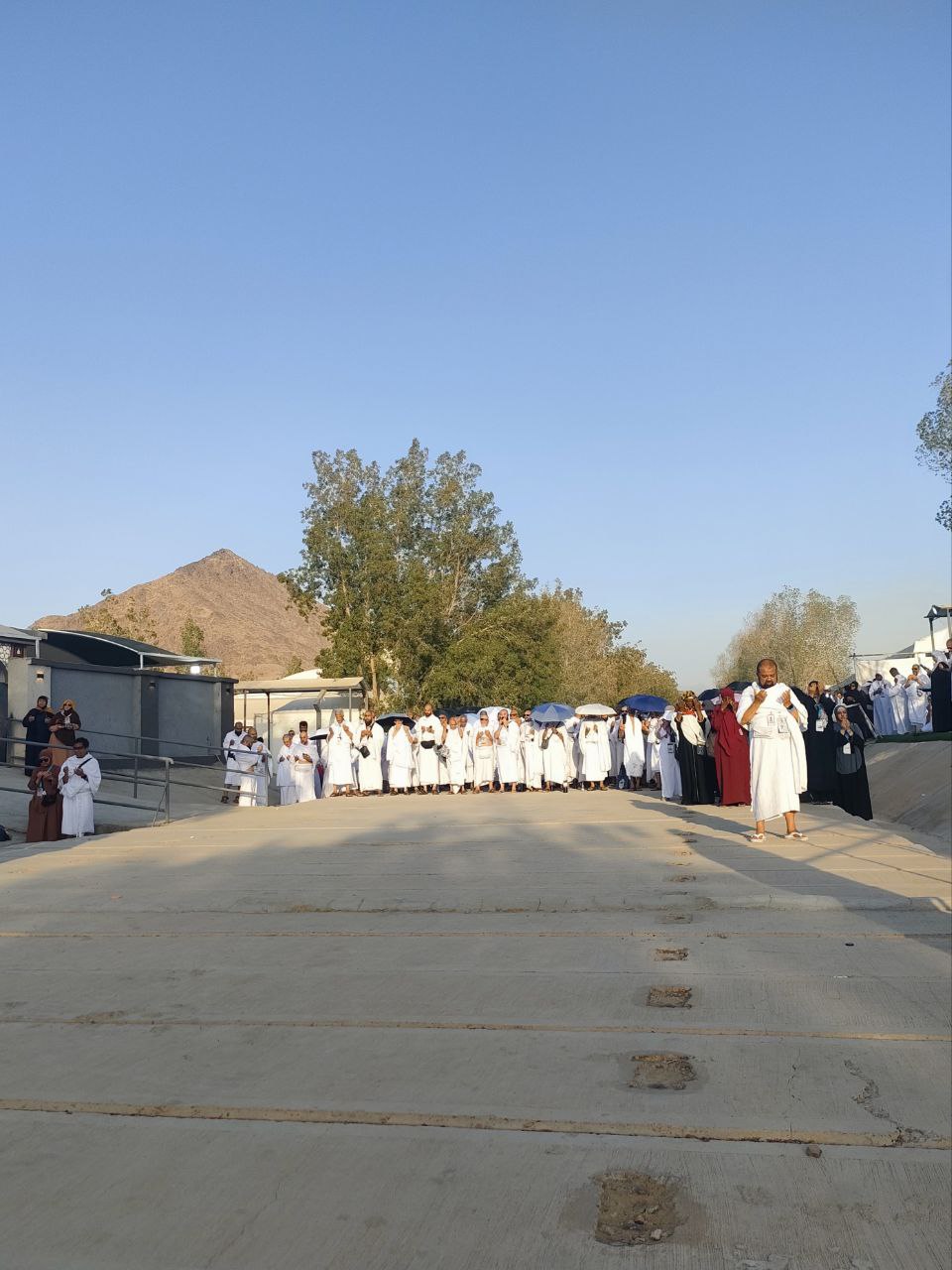
After Maghrib, we proceed to Muzdalifah. In Muzdalifah, we did Maghrib and Isha combined and shortened. Aftar that we collected pebbles (49 pebbles) for stoning in the tashrik days (10th – 12th Dhul-Hijjah)
- 10th Dhul-Hijjah 7 pebbles
- 11th – 21 pebbles
- 12th – 21 pebbles
In Muzdalifah it is sunnah to sleep. Pilgrims from every country, regardless their age, status and gender sleep on the same place under the open air.
Pilgrims slept in Muzdalifah*
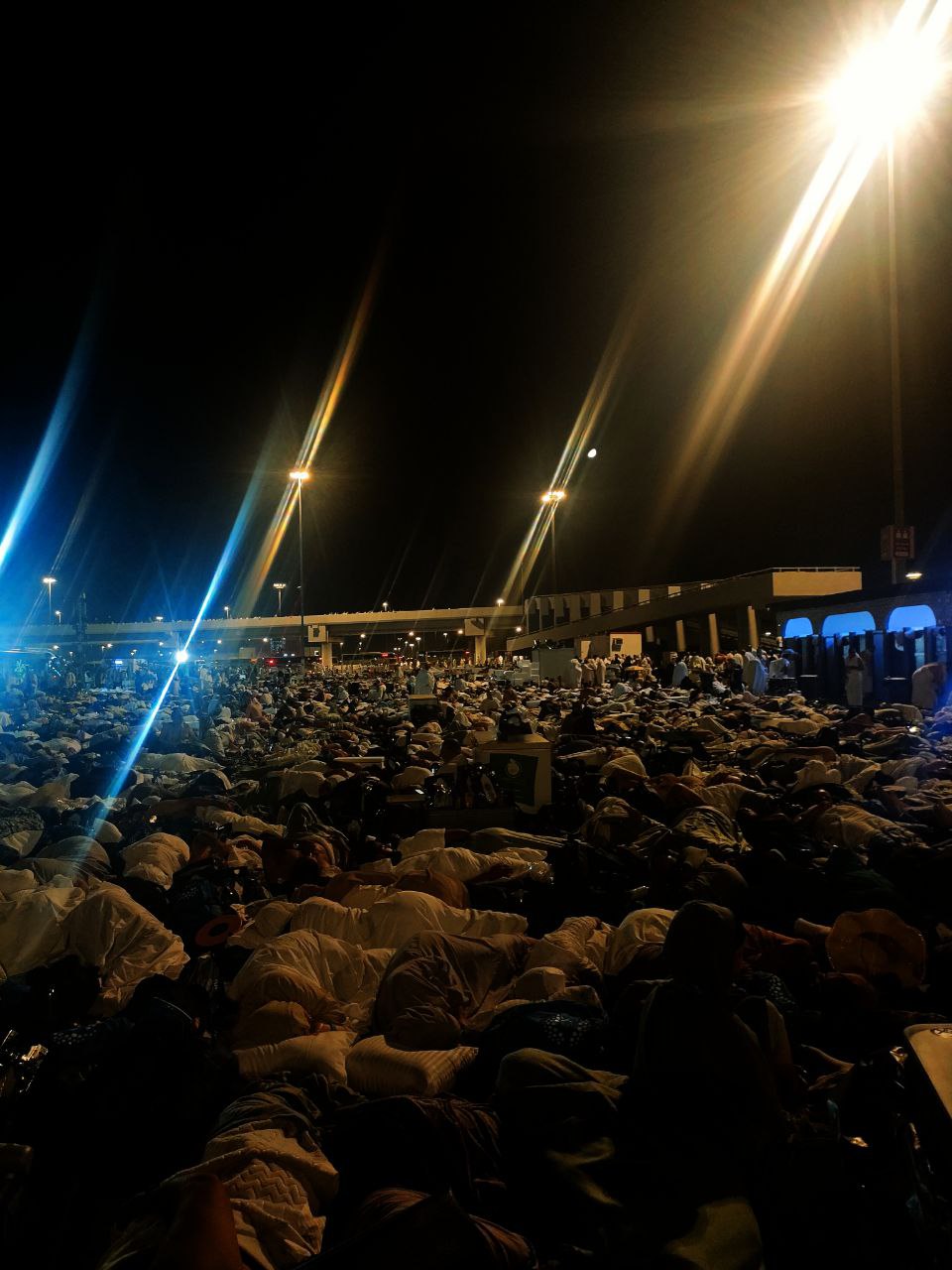
________________________________________
10th Dhul-Hijjah
After Fajr, we walked from Muzdalifah to Jamarat for stoning, then went straight to Makkah to do Tawaf Al-Ifadah and Sa’i. On this day, we walked 36km in total under 45-degree celcius with no proper sleep and eating. It was tough physically but Alhamdulillah Allah made it easy for us.
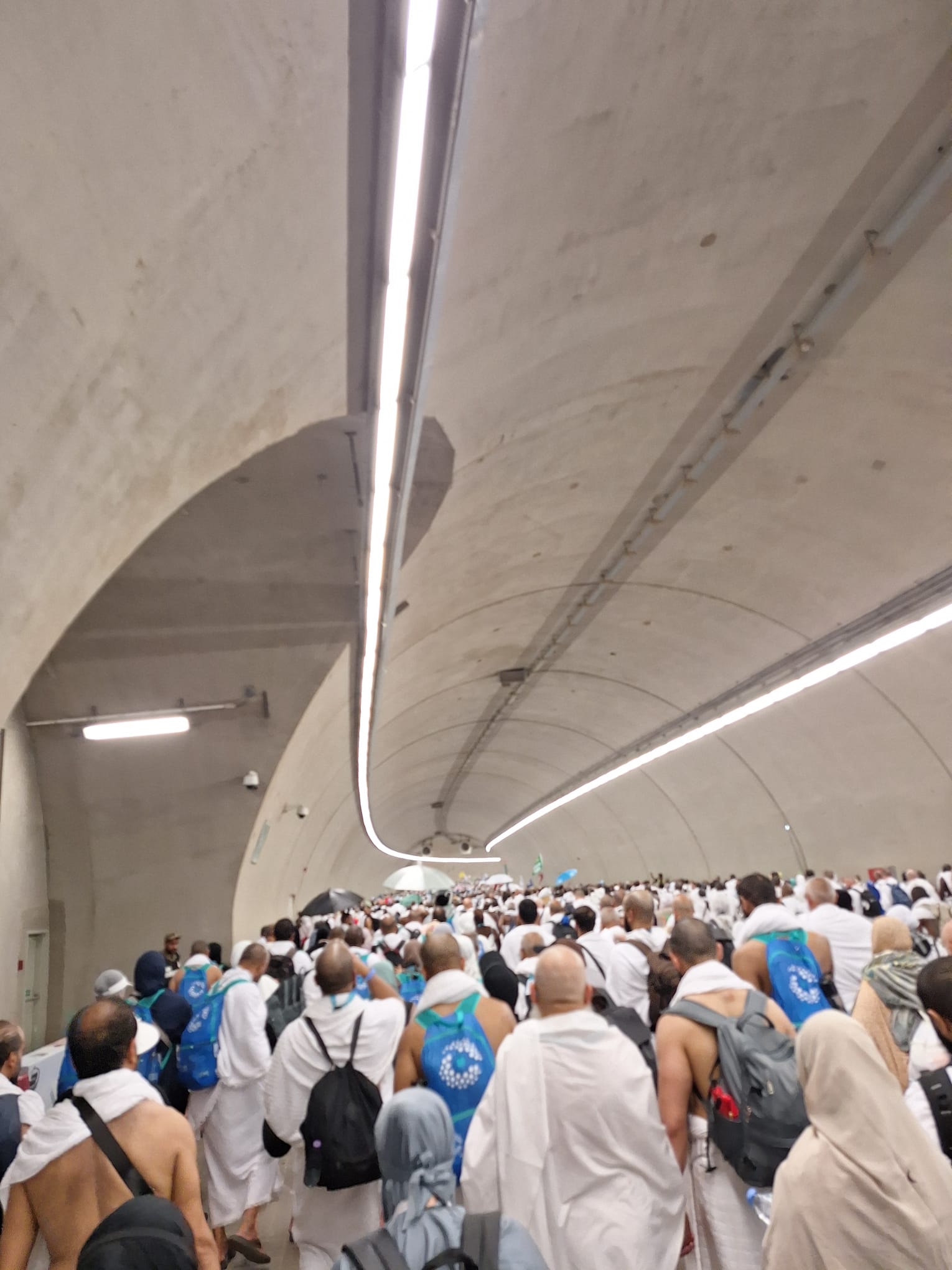
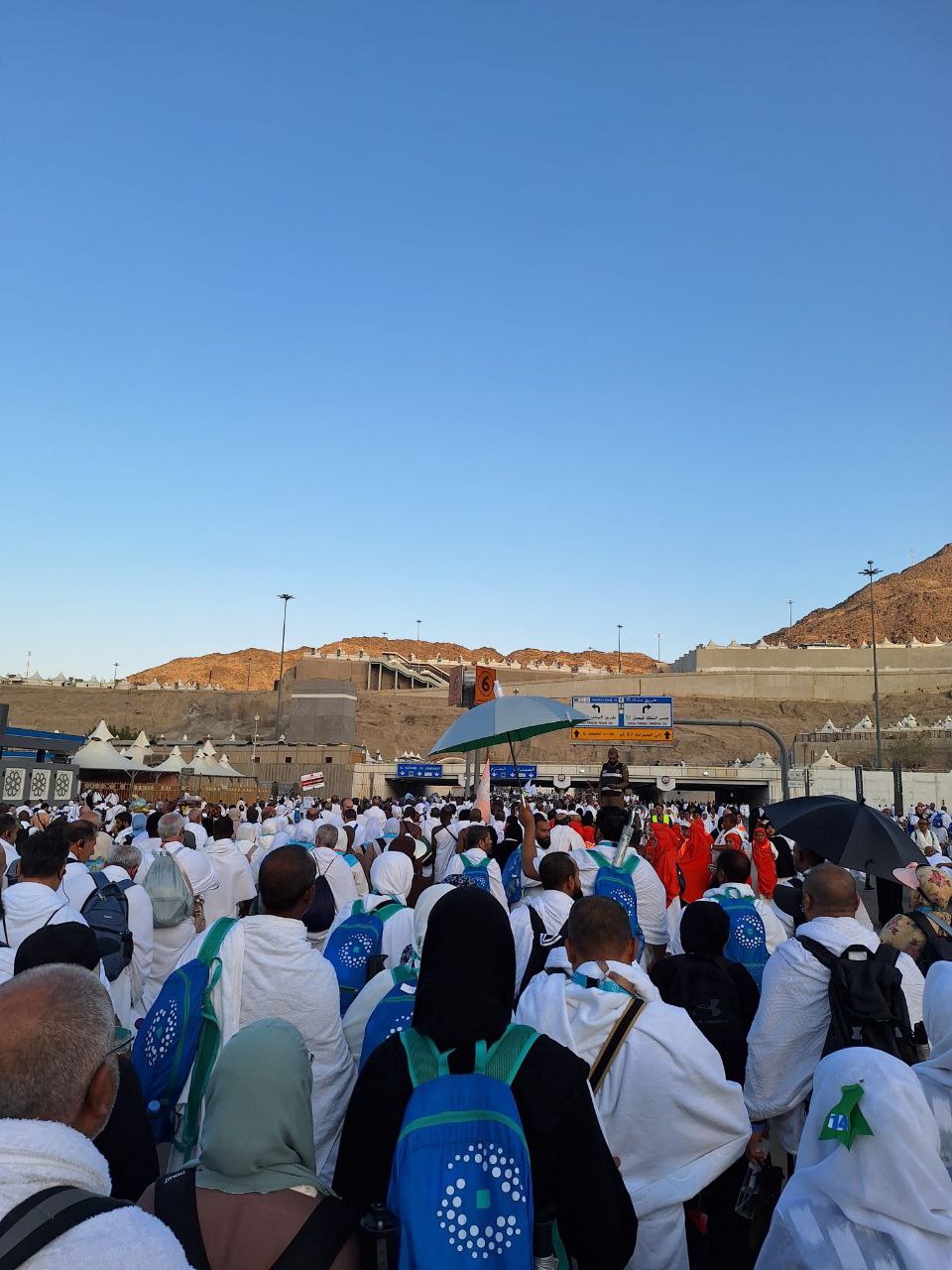
After completing Tawaf, we were told that our Hady (animal sacrifice) had already been slaughtered before proceeding to Tahalul (hair trimming or shaving). Once we performed Tahalul, we were no longer in the state of Ihram. In the evening, we returned to our Mina camp by bus and took some time to rest.
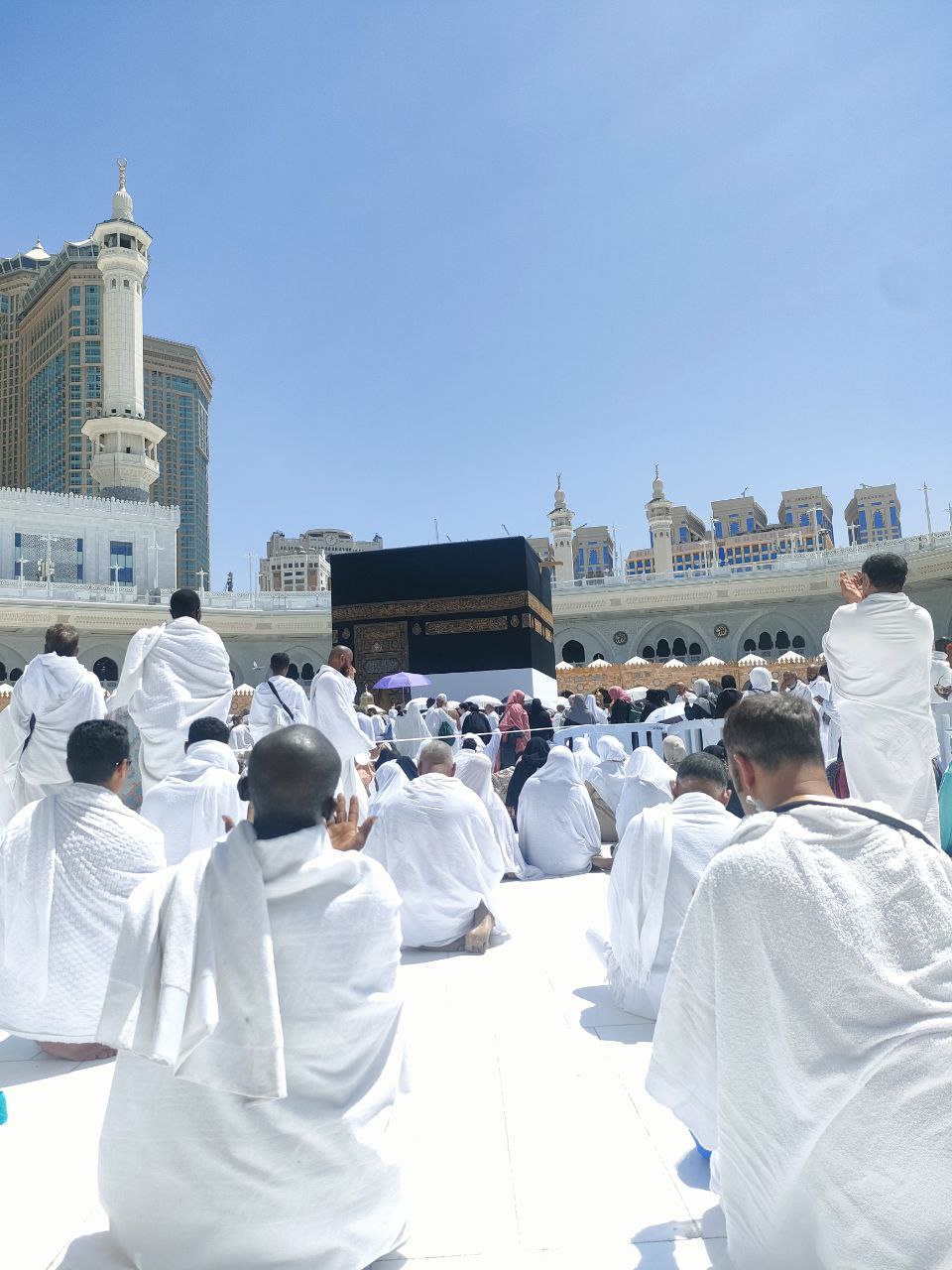
________________________________________
11th and 12th Dhul-Hijjah
On the 11th and 12th of Dhul Hijjah, we performed the stoning of the Jamarat by walking from our camp in Mina. The distance from our camp to Jamarat is around 5k one way.
Ibrahim (‘alayhi al-salam) was commanded to sacrifice his son. Allah, of course, never intended that the slaughter take place. Allah wanted, instead, to purify and free Ibrahim (‘alayhi al-salam) from every love and every attachment besides Him.
It was in Mina that the shaytan attempted to waylay Ibrahim (‘alayhi al-salam) from sacrificing his son. Ibrahim (’alayhi al-salam) casted pebbles at the shaytan to reject his designs and prompting.
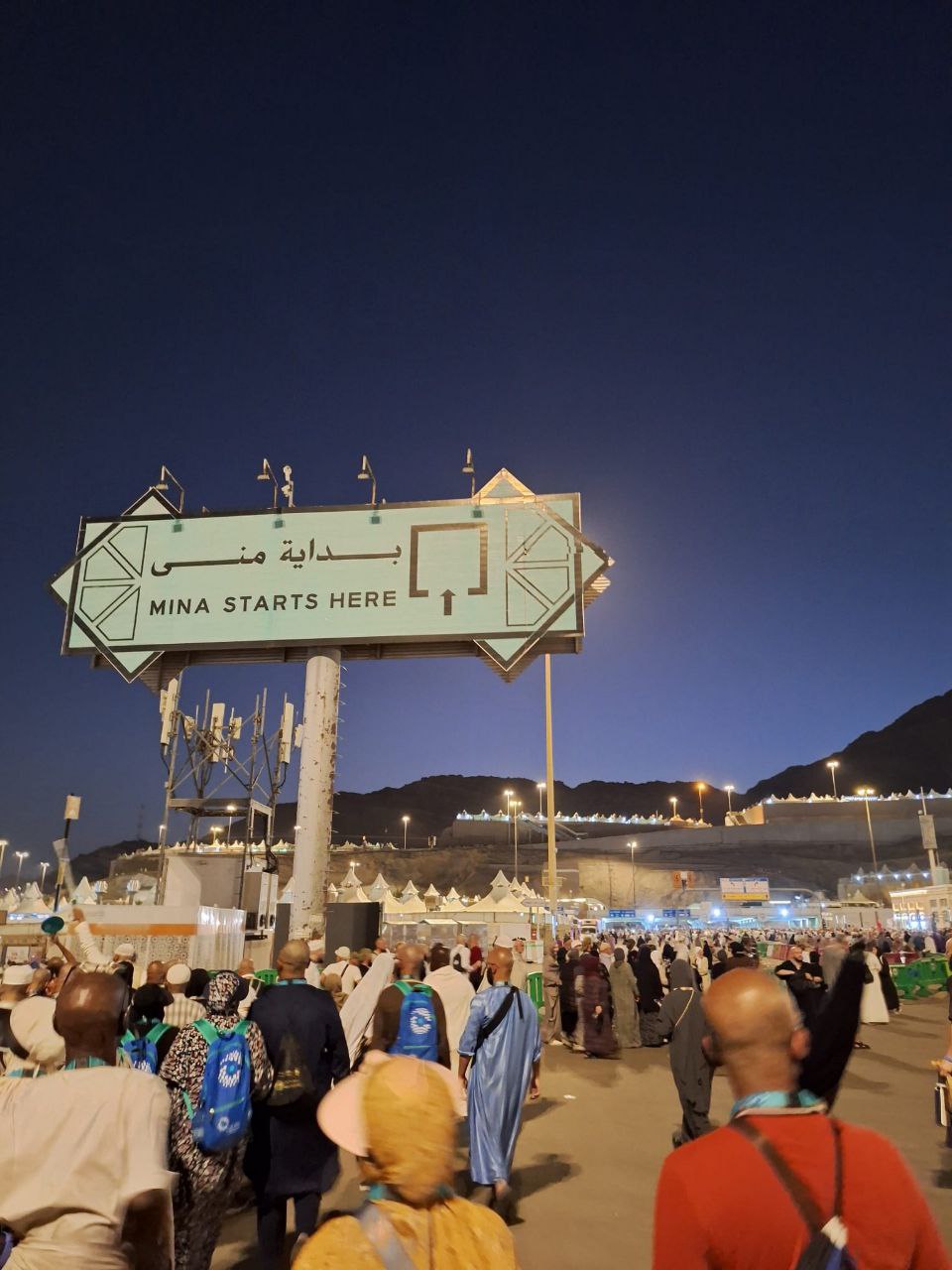
Casting the pebbles is the casting away of shaytan, the lower self (nafs) with its desires, inclinations and evil, and, ultimately, casting away everything besides Allah. The pebble is meant, not to hit the pillar, but to fall inside the container, or majmar, where it will remain. The fire of the nafs, its impetus to evil, must be cast out, contained and confined. Our nafs must be jailed for us to become free.
On the 11th, we departed to Jamarat after Asr and returned to the camp afterward, but on the 12th, we went straight to Makkah on foot after stoning in Jamarat. Once we completed the Jamarat on the 12th of Dhul Hijjah, we had concluded all the Hajj rituals.
For me overall, it was a life-changing and truly unforgettable experience. Although it was physically demanding, the spiritual rewards far outweighed the challenges. If I were given the opportunity to perform Hajj again, I would take it in a heartbeat. You will always miss the holy cities of Makkah and Madinah, and feel a deep longing to return again and again.
This blog post is written by a sister from IANL community (pictures were all taken by the author)
We hope this account benefits others who are preparing for Hajj or simply wish to reflect on its deeper meanings.
Jazakallah Khair,
The IANL Community

